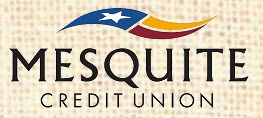Our History and Values
The Credit Union Difference
- Credit unions are member-owned financial cooperatives. Unlike banks, which are owned by stockholders, credit unions are owned by the members - that's you!
- Credit unions are run by a board of directors that is elected by all of the members. Each member has an equal vote, regardless of how much money he or she has at the credit union.
- Only members may serve as directors and directors serve on the board without compensation.
- Credit unions have no outside stockholders, so after reserves are set aside, earnings are returned to members in the form of higher dividends on savings, lower loan rates and lower cost services.
Safety & Soundness
Credit unions primarily provide consumer loans, residential real estate loans, savings and checking services to their members. Credit union performance is at a historically high level. Currently, credit union capital nationwide is 10.28% and the equity ratio of the federal insurance fund, the National Credit Union Share Insurance Fund (NCUSIF), has operated above 1.25% for 11 consecutive years.
Regulation & Supervision
Mesquite Credit Union is incorporated under the laws of the State of Texas and under state law is subject to regulatory oversight by the Texas Credit Union Department.
State chartered credit unions are regulated by their state credit union department. The NCUA administers the federal insurance fund, NCUSIF, which covers all federal credit unions, and most state chartered credit unions. No taxpayer money is used for regulating and overseeing federal credit unions, as all activities of NCUA and the NCUSIF are funded by credit unions.
Upon request, a member is entitled to review or receive a copy of the most recent version of the following credit union documents: balance sheet and income statement (the non-confidential pages of the latest call report may be given to meet this requirement); a summary of the most recent annual audit completed in accordance with §91.516 of this chapter (relating to Audits and Verifications); written board policy regarding access to the articles of incorporation, bylaws, rules, guidelines, board policies, and copies thereof; and Internal Revenue Service Form 990.


